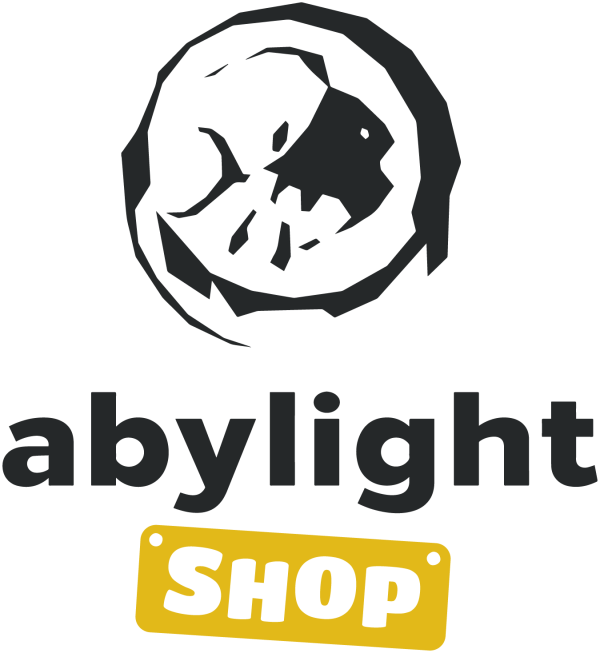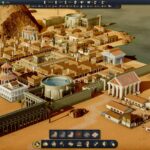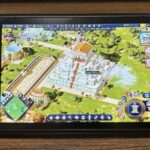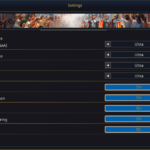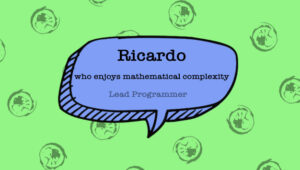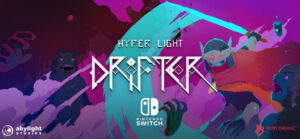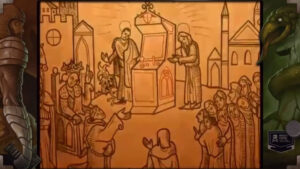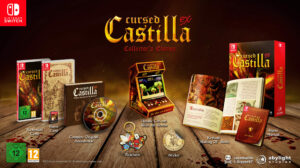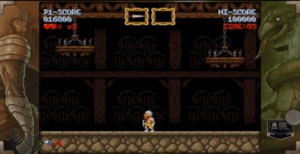Michael Devine (Ziggurat Interactive) and Eva Gaspar (Abylight’s CEO) spent some quality time on Abylight’s Twitch channel, talking about video games and Michael’s long career in the industry. From his beginnings in 3DO, to his current position as SVP of Ziggurat Interactive.
Ziggurat’s motto says: an old and new video game company. Not only retro games though, but re-imagined classic IPs, which is what brought about the collaboration between them and Abylight to develop the reboot of the Prison Tycoon franchise. A rewarding partnership based on mutual respect and a shared devotion for an industry that cannot be understood without passion.
The whole interview is available on Abylight’s Youtube Channel, where you’ll be able to consume the hour-long video like a normal person in the year 2021. That is: in a tiny window on a corner of your screen, at 2x playback speed, while you are focusing on other stuff.
But if you are like me, played a ton of text adventures and the written word doesn’t scare you, here’s an old-fashioned article for your enjoyment.
Let’s read!
The Begginings
The further you go through life, the more you realize how much of it it’s about perspective and learning to find the right balance between the new and the old.
It just so happens that, many times, it’s the mundane moments that define your path.
Imagine being struck with a life-changing epiphany over beer and pizza with a friend, one Friday afternoon. Trying to decipher the mysteries of the latest software for your Mac. Looking at the glow of the screen and realizing that, yeah, that’s what you want to do with your life. Video games. What are they? how far can they go?… So many questions! But you’ll find out.
Michael found out. But it took a couple of years of knocking on doors until he could finally get into the game business, working for a game distributor.
A couple of years out of school I decided that I needed to get a computer to help me with my horrible typing skills. The Mac had just game out so I thought, “why not?” and got it. Rather than typing, I played video games and became fascinated with it.
I started playing things like Zork, interactive text adventures, and racing games. I guess you could say I was obsessed. Those games were the wildest thing I’d ever seen in my entire life.
He jumped at the chance. It was around 1990, the infancy of the Sega Genesis, Neo Geo, Phillips CDi… Michael grabbed all of it, and from working with just a couple of software people with the NES, he was suddenly immersed in everything in the game business, working with 60 people for multiple platforms.
I loved every second of it – the business, the marketing, all of it. For me to go higher in my career, I had to get out of distribution and into game publishing.
3DO
Five years later, in 1995, he got an offer to join 3DO as their Western Regional sales person. It was just a couple of years after the launch of the hardware.
For those too young to remember, the 3DO was a video game console developed in 1993 by the 3DO Company, founded by Trip Hawkins (yes, the man from Electronic Arts). The hardware was impressive for a home console at the time. It was one of the first CD-ROM consoles and received ports of arcade and PC games, like Road Rash or Alone in the Dark, which other home systems couldn’t handle.
Interestingly, The 3DO Company didn’t manufacture the console themselves. The specifications were licensed to third-parties like Panasonic, Sanyo or Goldstar, which released different models of the system.
Even though 3DO’s technology was cutting-edge for the time, it struggled to compete with existing consoles. Licensing the hardware to other manufacturers made the console very expensive and they didn’t have the money to sell it at a loss, like some of its competitors, who expected to make up for that with software sales.
The 3DO system was fantastic. I mean, we were very involved in the proliferation of MPEG for video compression. Actually, 3DO built one of the very first 64-bit game systems called the M-2 that never wound up getting done.
The technologists at 3DO were literally some of the best in the world, but 3DO never had the manufacturing capability.
Eventually, specially after the launch of the PlayStation, 3DO had to abandon the hardware business and focus on multi-platform software development.
Amazingly, the company reinvented itself and 3DO became not just a game system company, but a software development company. We wound up having over a thousand employees and most of them were in development. In a two year period, we went from publishing only the 3DO, to doing about $80 million in the software business.
As a third-party developer, 3DO acquired studios like New World Computing, and had franchises like Heroes of Might and Magic and Army Men as some of their biggest hits. But in the end, it wasn’t sustainable.
There isn’t a single day in that 7 years that I regret. I loved every second of it. I was not only surrounded by Trip (Hawkins) and a great team, but was also surrounded by hundreds and hundreds of people who went to work daily with an utter passion for gaming, the company, and all that they produced.
And more than anything else, that was my takeaway from this experience – surround yourself with people that are so passionate and happy to be where they are and do what they do. That’s one of the recipes for success, in your life and in business.
The key ingredient is passion
As it happens with any creative endeavor, you need that level of craziness and love for your job that will make you endure all the hardships that will come during the creative process. Because everything will be worth it in the end. In Abylight we also believe in that, and that’s why we look for that passion in everything we do and in every person that becomes part of our team.
The bigger the environment, the less passion survives because it becomes more about the money than the drive. One of the reasons I chose a more independent path going forward in my career is that I need to feel that passion. I want to feel it the minute I walk in the door and at every desk I pass and in everyone I speak to. I want an environment where everyone does the best possible job we can to get that gaming product out the door.
Michael believes that nowadays, anyone who is really passionate can just start making games. Something that used to be much more difficult.
One of the things over the last twenty-five years that really changed (for the better I’d say) is the access to tools in this business.
The entry barrier has lowered and you don’t necessarily have to be part of one of the big companies, with a huge budget and a team of 40 people. The scope of the games might be different, but if you have the passion… you can start.
I mean…there’s a lot of pitfalls. It’s not easy. But, it used to be that you had to work for a big company to get the tools you needed. Now, they are readily available and a lot of them are actually available for free.
So now passion is the true motivator to get started. The business side can kill you. The distribution side might kill you, but now you actually have a lot of control on whether you can get a foot in the door in this business.
And in those small indie teams, driven by passion and free of the weight and constrains of a big, established IP and the control of a corporate leviathan, is where you can still find the creativity and feel the heart and soul of what makes video games great.
When you take a lot of elaborate tools away, (and that’s what happens with a lot of indie development) you get back to that really unique feeling of telling the story you want in gaming. That’s what feels genuine, and that’s what’s amazing about the indie game movement. It’s not a 30 million dollar development. Because when you build a monolith for that amount of money, you’re a slave to that. You’re a slave to not breaking any internal rule that you’ve created in how that particular game or brand works.
But in indie, you know, you might look at it and think, “wow, that’s really simplistic,” but when you start playing it you think, “God, this is really fun.” It’s because they nailed the concept. They nailed the narrative. They nailed what they’re doing. And that’s the heart of it, right? That’s why I gravitated most of my career towards the smaller companies, where that creativity can really shine.
TDK Mediactive
After 3DO went away, Michael landed in a gaming company named TDK Mediactive. The electronics corporation famous for their film and magnetic tape products bought a small development studio and stepped into the video game business.
Their whole model was based on licensed products, unlike 3DO. There, Michael was working with properties from Disney, Dreamworks, Marvel…
In fact, their CEO was able to get the licensing for a famous green ogre, after companies like EA or Activision passed on it. They published the first Shrek game to a great success.
We sold more of that game, I think, than any other game we ever produced combined. It was a huge hit for us and it made our company sustainable for an entire year.
On the other hand, other properties didn’t do that well… and TDK decided to focus on the tape business and sold TDK Mediactive to Take Two.
It was a short run, but super interesting and honestly taught me a lot about licensing development that I didn’t know.
And it was actually kind of fun. I learned a lot and even working with Ziggurat today, all these years later, some of the lessons I learned in licensing just from that little stay at TDK have stuck with me. So everywhere you go, every stop along the way, there’s something new you can learn and something new you can take away.
TDK started with a big indie feel, but by the end of its run it had gotten way bigger. Michael spent some years working outside of game development, and then got his teeth into a true indie environment when he joined Tommo.
Working with Tommo
Tommo is a video game publisher based in California. At that time, they had just launched the Neo-Geo Mini game system, and Michael came in as a marketing consultant.
It was really interesting actually. Right at the end of it, the owner of the company came to me and said, “Hey we just made a major purchase from Atari.” This was when they were going through bankruptcy and had acquired… I can’t remember how many titles. It was a ton…over a hundred titles.
He wanted to create a business model from it because he felt the future would be digital. Instead of trying to figure out how to get this stuff on game systems and making physical copies, we could do it digitally.
During his 6 years at Tommo, Michael worked in a division called Retroism, dedicated to publishing classic games into digital distribution channels.
It was pretty successful. We got some people to do publishing with us through the Retroism brand, but then the other thing (and it’s one of the things I’m most proud of in my career) is we acquired the rights to virtually all of the Humongous Entertainment games.
At that time, all Humongous titles were almost forgotten in the hands of Atari. They were just catalog to throw away as an extra in distribution deals. Tommo reinvented the brand in collaboration with Night Dive Studios, whose CEO, Stephen Kick, had absolute passion for Humongous’ games.
They were able to bring Humongous Entertainment games to Steam, and the response from all the nostalgic 80s and 90s gamers was incredible. They became some of their best selling titles.
That’s just how in love people were and still are with the Humongous brand and the Humongous roots. You know, truth be told, I’ve been in the business a long time. I’m closer to the end than the beginning. Dealing in the retro space and bringing people back to the things that they knew and loved, and giving them the best version of it, is now something I’m really passionate about.
And finally… Ziggurat Interactive
Michael’s passion about bringing back those memorable experiences, transports us finally to current times and his work with Ziggurat Interactive. That passion is present in the company’s vision, which is more than just publishing old orphaned games… is to resurrect them in the best version possible, enhance them for modern systems, with higher resolutions and fixing issues that couldn’t be fixed back then in the original.
To achieve this, they try to work with the original developers whenever it’s possible, but they also have internal production. And of course, they listen to the community, to make sure they offer an experience as close to the original as possible, while enhancing it to current standards, with modern tools.
Even though it’s still a young company, Ziggurat already has more than a hundred titles published on Steam. Not a small feat by any means. Among their recent releases we can find improved reissues of classics like Bloodrayne or A Boy and His Blob, on which they are working together with Wayforward and Terminal Reality.
These all come from a very singular place of believing in retro gaming and believing in the worth of these games to their players. These audiences love, care, and revere these games that have been a part of their gaming experience, sometimes for a generation, and we are trying to give them (within reason), the best possible experience we can.
They even go beyond revamping old games and dare to completely re-imagine IPs that they own. That’s how the collaboration between Abylight and Ziggurat started, thanks to Prison Tycoon: Under New Management.
That was a popular brand that was dealing with very hard and sensitive topics, that might’ve been acceptable back in the day, but needed a new approach for current audiences.
If we were going to do a game based on incarceration or prison, it really had to be fundamentally different. It had to speak about that experience in a way that made sense for where people are today with this really important and sensitive topic.
The reason that we went to Abylight with the project is because of how creative and passionate you are. A lot of people say they are passionate, but there is a very important reason we brought Prison Tycoon: Under New Management™ to you: because your passion has honesty.
We knew you wouldn’t just make the game to make the game. We knew you would only make a game you felt good about, that had the right messaging, and felt was worth of both your brand and our brand. If we couldn’t do that, we weren’t going to make the game.
The future is bright
At Abylight we can say that we feel the same way. Which is good, because finding good partners is as important in business as it is in life. For us it took a long career to find a partner that really respect us and understand us, and who also shares the same goal.
And the question is… what’s next for Ziggurat Interactive? Are they working on bringing back more classic titles? Are they working on new games too?
We are working on all of it! Remember, we’re only two years old. We just learned how to walk. You just have to give us some time. But these new versions are a process to where as long as we’re getting support from the fans and we’re seeing the right path and development, you will see more and more from us.
Just like Prison Tycoon was a re-imagining or an all-new version, expect you’re going to see more of that on our top IPs. And also expect that the relationship between Ziggurat and Abylight is going to continue into the foreseeable future, because we love working with Eva and Abylight and we plan to continue.
For more information about Ziggurat Interactive, you can visit their website.
Don’t forget to check out Prison Tycoon: Under New Management! The new DLC, Maximum Security, is OUT NOW on Steam! It has a whole new set of tools to tighten your prison’s security to deal with the most rebellious inmates yet.
And for more interviews, gameplay and talks about game development and publishing… we are waiting for you in our Twitch Channel 🙂

